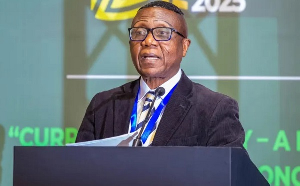: Africa’s Core Conflict Fault Lines
As a son of Africa, I have, time and again, been bombarded with questions about the utter prevalence of conflicts on the African continent. We, as a people, cannot gainsay the tremendous tolls that conflicts have taken on the development of our motherland. To many around the world, (although there is a growing recognition of Africa’s potentials among many others) Africa is that land mired in the doldrums of conflicts; too often, ones that evoke horrific images in their minds. While some of these notions, I opine, might be strewn with snippets of utter ignorance and sheer chauvinism, we Africans must accept the frailty of our societies and institutions in exorcising this phantom that has so heavily dealt us economic, social and democratic blows. We are all privy to conflicts on the continent and the concomitant hugger-mugger that has sailed with them. This begs the question: “Is true peace some mystical alchemy we have not discovered?”
The ubiquity of ethnic, tribal, political and religious diversity in Africa has been, in my humble opinion, both a blessing and a curse. It is worthy of note that the cards have not sufficiently broken our way in our attempt at nurturing these differences into a potent force for development. We all bore, and continue to bear, witnesses to the devastating effects of the miasma of conflicts that have become so synonymous with the continent. The conflicts between the Hutus and Tutsis, as well the conflicts in Liberia, Sierra Leone, Kenya, Ivory Coast, Somalia, Sudan, Kenya, etc., are quintessential cases in point. All these provide a veritable feast of cases where our societies came to a grinding halt, because of seemingly arbitrary and insignificant conflicts. It bears repeating that there are common patterns in the trivia of variations among all these conflicts.
More recently, religious conflicts in Nigeria and Mali took the very lives of many of our innocent citizens. These cataclysmic events have led to tellingly pathetic destructions of properties, towns and villages that are aggravating our already-weak infrastructure. Even more painful is the debilitating effects on the displacement of families and the rampant search for refugee statuses in foreign lands. Our own brothers, in a delirium of angst and paroxysms of hatred, reject any attempt to get beneath the “blind-folds” and cause havoc to some of our choicest neighbourhoods. There is not a shortage of African refugees in Norway, Sweden, United Kingdom, United States, to mention a few.
My argument is, nonetheless, not immune to criticism, because some might counteract it with the very fact that these refugees might come to appreciate the access to a plethora of resources and opportunities that are so palpably rare in their homelands. Though there might be a scintilla of truth in that, it is well to say, come to think of it, that nothing is loftier than peace and prosperity in your own homeland. While it is intuitively appealing to apportion blame to our leaders and rival groups for being the serial perpetrators of these blatant divisions in our society, it is about time we ferreted out ways to find solutions to these predicaments. This is because failure to do this might spawn horrendous consequences, among which missing that uber-important boat to economic and political development is a spectre that continuously haunts me.
I will not necessarily discount the fact that some of our leaders—in their subscription to kleptocratic tendencies—have goose-stepped us into the quagmire of the "black box" that conflict on the continent has come to represent. Of course, some of our leaders find it appealing using our differences, in a puff of political zeal, to engender conflicts that exorbitantly satiate their own egocentric needs; even so, whether or not we succumb to that utter brainwashing is of our own volition. The boundaries between and among our differences have been made fuzzy. Such a notion undermines our unity and rests upon a clear fallacy. In large measure, this is hardly a startling revelation, as we have always known our diversity as a people. I want to believe that the African people are perceptive to see our diversity as offering tantalizing prospects for development, if we see the potential for the fusion of perspectives. We are fortunate to be living on lands that are the repositories of natural resources like gold, diamond, petroleum, timber, to mention a few. Where we have failed to make our attack has been the effective use of these resources for our development.
Of course, the reasons for Africa’s conflicts are steeped in complexities that are totally beyond my ken. I am not going to say that I am that expert who has a solid handle on issues of this sort, but I have the urge to air my views on this hot-button topic as a concerned citizen. We acknowledge the fact that peace and tranquillity on the continent are at the very heart of our future as a people. If we are going to elevate our societies from the shackles of poverty and wars to the citadel of economic, social and democratic development, it will serve us well if we pay heed to this call. While I admit the tedious nature of the task, I want to believe that true peace, good governance and total economic development are within the potentialities of the African continent.
The onus lies on us to nurture these differences as conduits to the promised land. We must demonstrate that all else being equal, we are not any different than other continents and that we are willing to work hard for our rightful place on the global economic and political bandwagon. It is well to say that total peace and tranquillity are very central to our development. We can overcome Africa’s much-storied disenchantment with conflict, if we are willing to stand cheek by jowl even in the midst of diversity to bring peace into the realm. We must wage a war on conflicts on the continent. This is our chance. God bless Africa!
The author, MacLean Sarbah, is a graduate student reading for the M.Phil. in Innovation, Strategy and Organization at the University of Cambridge Judge Business School. He has also received a Master of Arts in Social-Organizational Psychology from Columbia University, as well as an Advanced Graduate Certificate in Cooperation and Conflict Resolution from the International Center for Cooperation and Conflict Resolution, Columbia University. Please forward enquiries to mac.sarbah@cantab.net. Thank you!
Opinions of Monday, 2 December 2013
Columnist: Sarbah, MacLean














